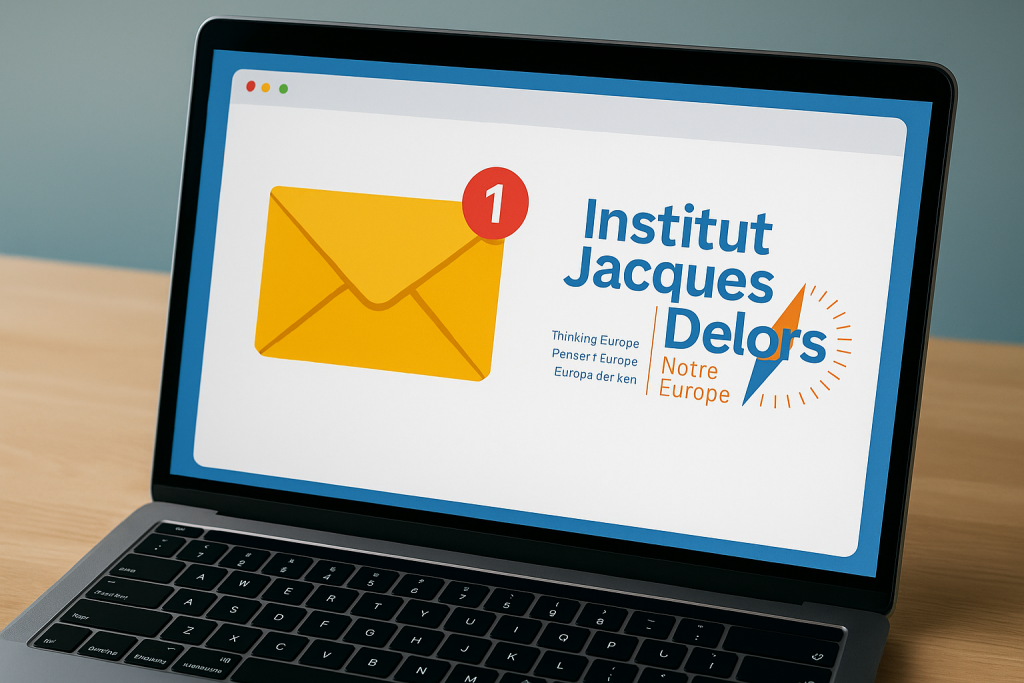2025, towards a European path for innovation, collective defence and solidarity?
Newsletter December 2024

The year 2024 is drawing to a close, and it has to be said that it was hardly any quieter than the years that preceded it. A year of elections all over the world (Taiwan, Russia, India, Iran and the United States, to mention only the most significant elections outside the European Union), it led to the renewal of the European Parliament in the EU after 9 June, followed by various appointments to key posts (Commission, Council, EEAS). However, the European elections revealed a politically fragmented Europe, with traditional parties weakened, with the exception of the European People’s Party, by the rise of far-right movements. This right-wingisation of European institutions risks complicating the identification of solutions to reconcile internal cohesion and external challenges. At the same time, the chaotic progress of the coalition in power in Germany, followed by the announcement of new elections next February, coupled with the dissolution of the National Assembly in France and after the parliamentary elections yielding no clear majority, are making the Franco-German couple in Brussels more fragile than ever, and consequently an essential driving force for European integration.
In November, the election of Donald Trump as President of the United States, his programme, the repeated threats over tariffs and the conflict in Ukraine, and the first appointments, augured difficult times ahead for Europe and the world, at a time when geopolitical instability had continued to grow throughout the year, with systematic local/global resonances threatening to destabilise a number of states and, even more obviously, democracies at the end of their tether. Meanwhile, climate crisis management was becoming ever more urgent, with extreme weather events hitting several regions of the world with devastating force, amplifying calls for more ambitious action against climate change. From this point of view, COP 29 in Baku proved very disappointing, even though few results were expected.
Europe as we know it now seems on the verge of fracturing. Between a desire for strategic autonomy that is struggling to materialise, a multifaceted demand for security on the part of its citizens and internal tensions that are undermining its cohesion. The EU finds itself at a decisive crossroads. It must respond to a climate emergency that has become even more acute this year. The floods and heatwaves of 2024 served as a reminder of just how urgent it is to put into practice the climate commitments made, while at the same time the rise of populism, internal tensions and disputes over the path mapped out by the Green Deal are undermining its unity and its ability to respond in a coordinated way to global crises. Europe also has to contend with the rise of protectionism, particularly in the United States, and at the same time with heightened Chinese competition in key sectors (carmakers and electric vehicles, for example). It is losing ground in terms of its economy, innovation, competitiveness and defence.
Faced with today’s disruptive world, and rather than continuing to manage crises, should Europe not take a radical turn in 2025: that of an ambitious overhaul, rethinking its political structure, its internal solidarity and its role on the world stage. Inaction in the face of these challenges could well be the greatest threat to its future. In a way, this is the tenor of the declaration made by the Heads of State in Budapest at the very beginning of November, and let us hope that the renewal of the European institutions following the elections last June will enable us to move in this direction. This is also what Sébastien Maillard underlines in his article on Albania, facing the major challenge of its integration into the EU. This process is more than ever a test for Europe: how to integrate a Balkan country while preserving its geopolitical integrity and unity?
On the other hand, the question of European defence remained at the centre of preoccupations, notably with the role of NATO. Nicole Gnesotto raised the crucial issues at stake in the relationship between Donald Trump, NATO and the future of European defence, particularly following the re-election of the Republican leader and the risks of divisions, whereas a serious reflection on Europe’s strategic independence in the face of a volatile American partner would be essential.
The adaptation of the European single market to geopolitical competition was also a central theme, notably with the infographic produced by Andreas Eisl and Eulalia Rubio. It highlighted the crucial issues involved in maintaining European competitiveness while managing the challenges posed by new global players. The single market must evolve to respond to pressure from China, the United States and Russia, at a time when economic sovereignty is becoming a priority. In his first Blogpost for our Institute, Bertrand de Cordoue questions the very concept of European sovereignty. The question of a competitive European industrial policy was also explored by Andreas Eisl. At a time when the world is reshaping itself in terms of technology and energy, Europe absolutely must rethink its industrial strategies if it is not to lag behind the world’s economic powers.
Another key issue in November was the question of Chinese influence in Europe. While Europeans remain relatively open to Chinese investment in electric cars, despite the customs duties recently imposed, Arthur Leichthammer of the Centre Jacques Delors in Berlin warned of the risks that such investment could present if it is not properly supervised. Jacob Kean-Hammerson and Romain Collet report for Europe Jacques Delors in Brussels on the final negotiations on the global plastics treaty. This agreement, which is set to become a pillar for the regulation of plastic waste, raises important questions about the harmonisation of legislation and the compromises needed between member countries.
Once again, Europe, in all its diversity, must find the path of innovation, collective defence and solidarity. This is how it will overcome the obstacles it faces and reinvent itself for future generations. Let’s wish it all the best for 2025 and the next 5 years.
Happy holidays to you all.




